Posted by Phil Johnson

 | e got off: |
|
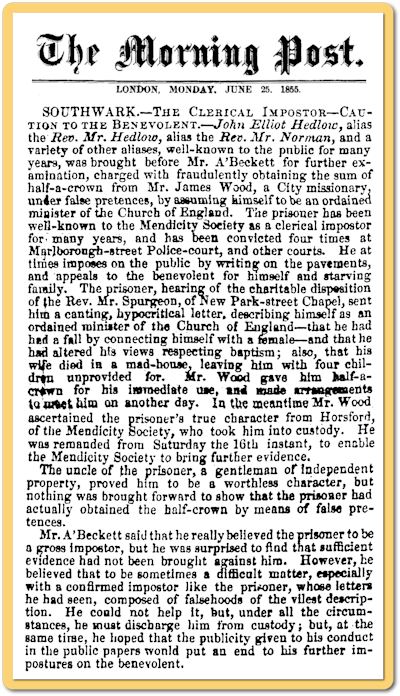


 | e got off: |
|



 n June of 1855, Charles Spurgeon was just 20 years old. He had accepted the pastorate of the New Park Street Chapel just 14 months earlier, and his fame was already beginning to spread internationally.
n June of 1855, Charles Spurgeon was just 20 years old. He had accepted the pastorate of the New Park Street Chapel just 14 months earlier, and his fame was already beginning to spread internationally.
For someone so young, he had gained an unusual amount of pastoral skill and wisdom from observing his father and grandfather (both pastors). He had also pastored a medium-sized congregation for a few years at Waterbeach before coming to London. But all his prior pastoral experiences were in small towns and rural settings. Spurgeon was still a bit callow when it came to discerning the schemes of Victorian con-artists who infested the squalid districts of London. He had a warm, generous heart and a passion to help London's teeming masses of needy and destitute people. He was well known for being always generous and charitable—but he was perhaps too gullible at times.
The following incident was reported in all the London newspapers.
|
* The purchasing power of a half crown would equal between $50 and $100 in 2025 dollars. It was a substantial sum to hand to a vagrant dressed in shabby religious garb.
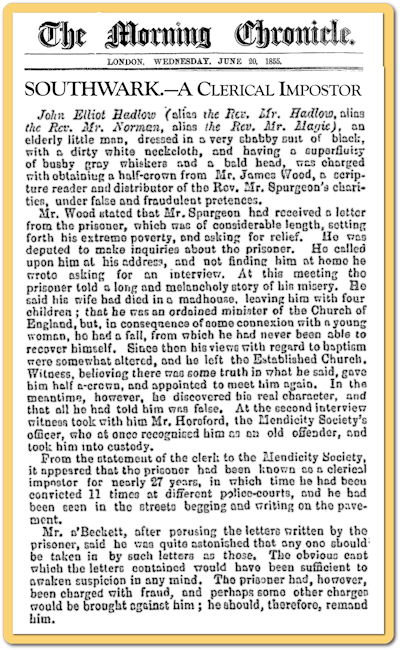

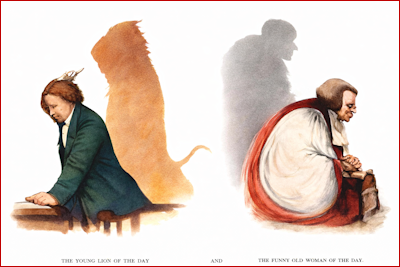 CLICK HERE FOR FULL-SIZE IMAGE |
|
A late writer in the "Sunday Times," under the signature of "Warder," addresses the Rev. Charles Spurgeon in the following terms, the style and power of which remind us of the classical Philippics of Junius:—
You are, I am told, to preach in your new monster Tabernacle this very evening. The huge place is built and paid for. I congratulate you. The achievement, considering your youth and your ignorance, is certainly astonishing. Some people predicted that you would fail in this gigantic undertaking: you have disappointed them. Some people predict that you will not be able to fill your chapel now that it is erected: I beg you will not listen to their croakings. Depend upon it: they badly over-estimate the intelligence, wisdom, and common sense of the generation! For years and years to come you may assure yourself there will be fools vast enough in London to make you a congregation vast as your vanity and mighty as your tongue.For your chapel itself, it is ugly enough in all conscience! Big, to be sure, it is; but more unclassical it could hardly be. It has cost an enormous sum of money; but, then, deformity is always as expensive as beauty in this world. It will suit your worshippers admirably; and I suppose the devotions paid to you will be the chief carried on within its walls. There is nothing akin to religious taste in its aspect; it is a big, ugly staring vulgar profane place; and as such it will harmonize only, and too happily, with the kind of services over which you usually preside. Sir, your chapel is worthy of your genius and your fame.
I frequently meet with people who profess to be amazed at your popularity. Why should they? You work hard. You have an unlimited supply of tongue always at command. You never puzzle the brains of your hearers. Your sermons are well spiced. You are flippant, familiar, and, in a certain fashion, jocose. You are intolerant, dogmatic, and common-place. You revel in judgments. You are precise in all the details of perdition. You have scaled the heights of Heaven. You have fathomed the depths of Hell. You talk with Satan as a man talks with his friend. You talk with the Almighty as no man talks with his friend. You are the munificent patron of the Redeemer. You are the merry playmate of the Holy Ghost.
You are a wholesale and retail dealer in that famous and much sought after article—damnation. Your pulpit is a big brimstone warehouse.
You are one of the Clowns of the church, addressing immortal souls in a "here we are" sort of style. You never pause for a word, because words, in your estimation, are not sacred, and are very cheap. You have no care about religious properties. You own immeasurable quantities of brass. You are a prodigious quack. As you boast of having been told by a gentleman in the street, "you are a great humbug."
Now, these are all elements of popularity. Your gospel is a nostrum which you unlimitedly puff, and it has accordingly an unlimited sale. I see about the street every day, an ugly carriage, blazing with paint, brass and gold, in shape like a teapot; in decoration like a bawd; in character like a child's plaything. On it is the inscription "The Elixir of Life." I dare say you know it. It is a small-headed, big-bellied cannister on a truck.
I can well imagine the elevated complacency with which you gaze upon that carriage. For that carriage you are an impersonation. Your doctrines, you maintain, are the elixir of life. You drive about the street, a self-advertising medium. Children, women, and foolish men stop, stare at you as you go by, give a chuckle, as though they had beheld something very funny and pass on. But the elixir pays. The advertisement, however impudent, is not thrown away. Thousands go and buy the miserable compounds that you proclaim to be medicine of the soul, they give a good price for the article. To be sure it does not cure them of their moral infirmities; but you make the profit; and why should not all mankind be satisfied?
Illustrations cadger! I almost adore you. The facility with which you convert brass into tin is something to be admired in this age of money-hunting. You bring Omnipotence itself into your shop, and set it up behind the counter as chief salesman.
You beg and pray in the same holy name—the same unholy spirit. You sell your blessings as the priests of another sect used to sell their indulgences. You are the cheap-jack of the religious world; and you drive a roaring trade.
"So many Divine grains for so much! A dose of damnation and a pun for so much. Here you have a poke in the ribs of Ineffable for so much. What shall be the next article gentlemen? I will dance a heavenly hornpipe for so much! Jigs of grace are going at so much! The irresistible burlesque of redemption is now offered—who bids? The devices of the devil denounced for so much! Babylon exposed in a screech of bigotry for the smallest possible consideration! The doctrine of Salvation discounted at so much percent! Dishonored bills of conscience bought in to any amount! A case against any man's soul granted on the lowest possible terms! Sacred sneers by the dozen! Jibes of spiritual joy by the gross! Pay up stiff and prompt and I will pray for you! Whoso giveth unto Spurgeon lendeth unto the Lord: whoso giveth not unto Spurgeon shall be given over to the wicked one. Gentlemen, the chapel is paid for, and now it belongs to my friend Jesus."
Such, sir, is your boast one night. The next, you blow up your guests because the collection is a small one. Your congratulations are in God's name: so are your censures. You are like an Irish beggar in this respect. Give; and no benediction can be too gracious: deny; and no denunciation can be too withering! If you receive a donation, the promises of Heaven fall from your lips. If you do not, you find the threats of Hades just as easy!
To my mind, sir, your assumption of personal identity with the Great Jehovah is the most offensive feature in your entire character. With the zealots of your sect this vice is frequently too apparent, though I believe it is often most unconsciously indulged. In you it assumes most horrible proportions.
It is not the complacency of assured faith; but the swagger of egotism without culture—of audacity without conscience. Were it not for this, you would be a harmless amusement for ignorant people; as it is, I fear your influence must tend powerfully to bring religion into the contempt of all thoughtless minds.
The gospel is not a vulgar joke. Christianity is not a burlesque extravaganza. Faith is not a farce. Hell and heaven are not the words to be made the stock-in-trade of a vulgar punster. Salvation is not a quack remedy. Apostleship is not a merry-Adrewism. The sanctuary is not a play-house. But your prayers are profane gossip with God. Your comments on Scripture are the paltry gag of a low comedian. Your preaching is the religious nonsense of an improvisator. Your earnestness is impudence.
Your success is a national scandal.
 CLICK HERE FOR FULL-SIZE IMAGE |
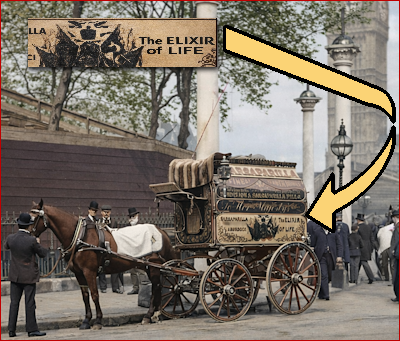 CLICK HERE FOR FULL-SIZE IMAGE |



|
I have a few spare moments, and as I have just returned from Spurgeon's famous Tabernacle and was much impressed with what I saw and heard there. I will tell you all about it.
I took a cab at Charing Cross Station, where I am stopping, and in fifteen minutes after having paid [no doubt overpaid] the cabbie I found myself at the entrance of the great Tabernacle. I cannot give any correct idea of the exterior of the building, except that it is very ordinary looking and the brickwork somewhat dingy from long exposure to London smoke and grime.
As I entered a deacon hailed me [I knew he was a deacon. Why is that one never mistakes a deacon?] and asked me if I had a ticket, at the same time tendering me one. I was confused and put my hand into my pocket to respond to the rules of the Tabernacle as to price. When he saw my intention he said that there was no regular charge, implying as I thought an irregular one, but he was particular to say that I might put anything that I liked into the large box on my right, which of course I did. After this I felt relieved, as did also the deacon, for he smiled, but not in the San Antonio way, although I would not like to tempt him on a week day. Of course on Sunday it was not to be thought of.
I now thought myself at liberty to enter the races. I mean the race for a good seat. I finally picked out the best, and softest place that was handy, and as the services progressed took the following summary.
The room is oblong and evidently built for acoustic effects and large seating capacity, which latter I should say was about five thousand. There are two galleries running around the room, and the pulpit is on a level with the first gallery, the choir being just in front of the pulpit. I should think that there were one hundred choir boys, but the singing was of the most simple character and always joined in by the congregation.
By half past ten the Tabernacle was full, and those arriving after that were glad of standing room. All classes were there, but I thought the middle class the more numerous, and there were evidently many strangers. I was impressed that Spurgeon was the teacher of England in a popular sense. Mr. Spurgeon entered the room from the rear, accompanied by several other gentlemen, apparently connected with the church.
His theme was well chosen and his discourse of a character and so handled as to make him beloved by the common and lower classes. I did not notice many aristocratic faces, I suppose because Mr. Spurgeon is really the other people's preacher. And by the way, it seems to me a pity that preachers have to cater to classes. It was not so with the Great Preacher.
A gentleman on my left said that Mr. Spurgeon was not in very robust health, and no doubt his great load of responsibility and work was telling upon him. Of course everything was English from the pulpit to the pronunciation, but I left the church feeling that Mr. Spurgeon was a good man, and on the principle that it is better to be right than to be president, felt drawn to him. He impressed me as having a great heart, and a love for his fellows so strong that he felt called upon to better their condition, and there can be no doubt that the simple though fervid eloquence of Spurgeon has done more to raise the moral tone of London's poor and middle classes than any other one influence.
The Dear Old Man is nearing his end, so his friends fear. When he has gone his place will be hard to fill, both because of his own peculiar genius and power, and also because there are so few nobler and unselfish men in the world.
J. M. E.
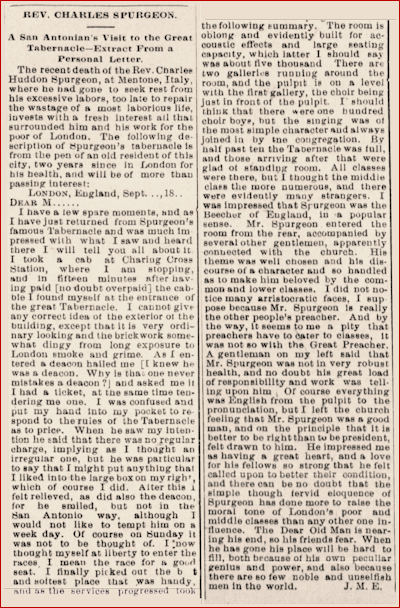

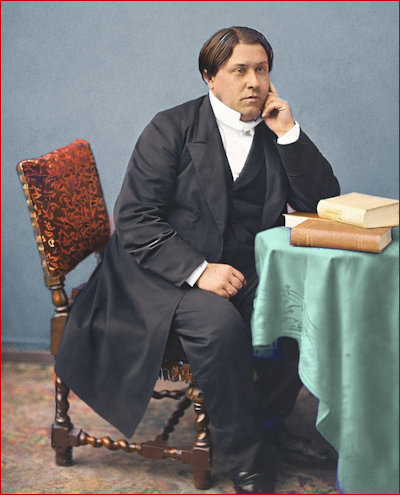
|
 he Judge of all the earth cannot but do right. Though he is terrible and dreadful in his anger, as a consuming fire, yet is he still our God for ever and ever, full of goodness and full of truth.
he Judge of all the earth cannot but do right. Though he is terrible and dreadful in his anger, as a consuming fire, yet is he still our God for ever and ever, full of goodness and full of truth.
There is a deep-seated unbelief among Christians just now, about the eternity of future punishment. It is not outspoken in many cases, but it is whispered; and it frequently assumes the shape of a spirit of benevolent desire that the doctrine may be disproved. I fear that at the bottom of all this there is a rebellion against the dread sovereignty of God.
There is a suspicion that sin is not, after all, so bad a thing as we have dreamed. There is an apology, or a lurking wish to apologise for sinners, who are looked upon rather as objects of pity than as objects of indignation, and really deserving the condign punishment which they have wilfully brought upon themselves. I am afraid it is the old nature in us putting on the specious garb of charity, which thus leads us to discredit a fact which is as certain as the happiness of believers.
Shake the foundations upon which the eternity of hell rests, and you have shaken heaven's eternity too. "These shall go away into everlasting punishment: but the righteous into life eternal." There is precisely the same word in the original. We have it translated a little more strongly in our version, but the word stands the same; and if the one be not eternal, the other is not. Brethren, this is a fearful thing. Who can meditate upon the place appointed for the wicked without a shudder?
Ungodly men affect to think we like to preach upon these topics. Far, far enough is it from being the case. I have had to censure myself of late for scarcely having preached at all upon them. They fancy that Christian men can look with complacency upon the torment of the lost, imagining themselves to be safe. They know not what they say. The very reverse of such a spirit is common among us. We shudder so much at the thought of men being cast away for ever, and horror takes so strong a hold upon us, that if we could doubt it, we would; and if we could disprove it altogether, we feel we should be glad. But we dare not attempt the task, because we know that it were to impugn the sentence of the Almighty, and provoke a quarrel against the Most High. Great Judge of all! thou shalt trample upon thine enemies in the day of thy wrath; yet shalt thou be as glorious in that act as when thou dost pardon sin, and pass by transgression.
Christian, look there, and, as thou lookest, rebel not, but say, “True and righteous art thou, O God; let thy name be honoured evermore!


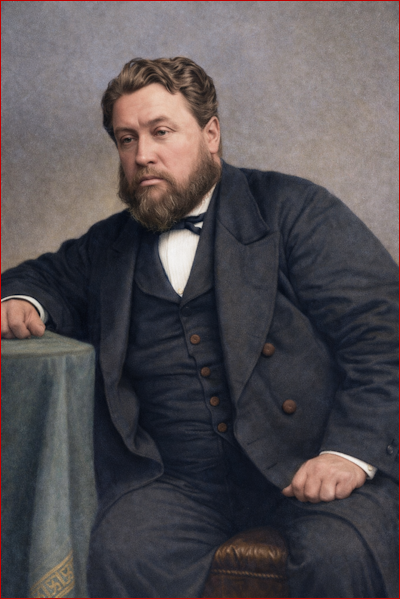
 rior to the middle of the 19th century, burial of the dead usually took place in churchyards. These were small, often overcrowded burial grounds—especially those that got severely squeezed by urban development.
rior to the middle of the 19th century, burial of the dead usually took place in churchyards. These were small, often overcrowded burial grounds—especially those that got severely squeezed by urban development.
London in particular had this problem. The city was well known for the powerful stench that emanated from sewage in the Thames. Foul odors that wafted into the atmosphere from decaying bodies in shallow churchyard graves added to the fetid ambience of the city. Londoners believed the nauseating odor that hung in the air over their communities carried infection. "Bad air," known as the miasma, was commonly believed to be a major factor in the spreading of disease.
In Europe and America, city planners began to build rural cemeteries—parklike acreages located (at the time) well outside the city limits. London, for example, built seven expansive burial parks circling the city (dubbed "the Magnificent Seven" sometime in the 1980's). One of these was the West Norwood Cemetery, where Charles Spurgeon would be buried in early 1892.
Crowded cemeteries such as Bunhill Fields and most churchyard burial grounds within the city limits were closed by the Burial Act of 1852. Then during the 1854 cholera epidemic, a physician, John Snow, proved that the disease was not airborne; it was spread by contaminated water. Ground-water pollution was the result of poor management of London's sewage. Cesspools, slaughterhouses, and other sources of wastewater were draining into the aquifer, contaminating well water. That was the real culprit—not the air, and not old graveyards.
By the 1870s, England's Funeral Reform Movement had turned its attention to the extravagant costs and pretentious pageantry associated with typical Victorian funerals. These were lavish formal affairs with professional mourners (known as "mutes"), who followed ornate hearses festooned with ostrich plumes, carrying expensive coffins. Mourners were expected to wear formal clothing made of black crepe and march in procession to the burial. Burial monuments were often large, heavily ornamented stone structures. The cost of a "decent" burial could bankrupt a working-class family.
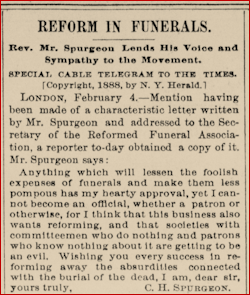 Funeral Reform activists lobbied and campaigned for more modest, less expensive, more simplified ceremonies. The movement soon became noisier and more aggressive, and they solicited Spurgeon's influence in support of their efforts. He replied in his typically elegant fashion, indicating frankly that while he was fully sympathetic with the cause, he did not want to be associated with the reputation or rhetoric of the movement. He gently suggested that the movement itself could use some reform.
Funeral Reform activists lobbied and campaigned for more modest, less expensive, more simplified ceremonies. The movement soon became noisier and more aggressive, and they solicited Spurgeon's influence in support of their efforts. He replied in his typically elegant fashion, indicating frankly that while he was fully sympathetic with the cause, he did not want to be associated with the reputation or rhetoric of the movement. He gently suggested that the movement itself could use some reform.
This type of gentlemanly candor is one of the features of Spurgeon's style that I appreciate most. The Philadelphia Times (February 5, 1888), p. 2 carried his reply:
Anything which will lessen the foolish expenses of funerals and make them less pompous has my hearty approval, yet I cannot become an official, whether a patron or otherwise, for I think that this business also wants reforming, and that societies with committeemen who do nothing and patrons who know nothing about it are getting to be an evil. Wishing you every success in reforming away the absurdities connected with the burial of the dead, I am, dear sir, yours truly.



Posted by Phil Johnson
 any have failed to understand how everything, from the smallest event to the greatest, can be ordained and fixed, and yet how it can be equally true that man is a responsible being, and that he acts freely, choosing the evil, and rejecting the good.
any have failed to understand how everything, from the smallest event to the greatest, can be ordained and fixed, and yet how it can be equally true that man is a responsible being, and that he acts freely, choosing the evil, and rejecting the good.
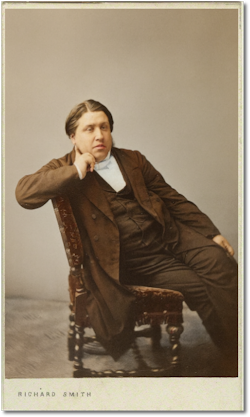 Many have tried to reconcile these two things, and various schemes of theology have been formulated with the object of bringing them into harmony. I do not believe that they are two parallel lines, which can never meet; but I believe that, for all practical purposes, they are so nearly parallel that we might regard them as being so. They do meet, but only in the infinite mind of God is there a converging point where they melt into one. As a matter of practical, everyday experience with each one of us, they continually melt into one; but, so far as all finite understanding goes, I do not believe that any created intellect can find the meeting-place. Only the Uncreated as yet knoweth this.
Many have tried to reconcile these two things, and various schemes of theology have been formulated with the object of bringing them into harmony. I do not believe that they are two parallel lines, which can never meet; but I believe that, for all practical purposes, they are so nearly parallel that we might regard them as being so. They do meet, but only in the infinite mind of God is there a converging point where they melt into one. As a matter of practical, everyday experience with each one of us, they continually melt into one; but, so far as all finite understanding goes, I do not believe that any created intellect can find the meeting-place. Only the Uncreated as yet knoweth this.
It would be a very simple thing to understand the predestination of God if men were clay in the hands of the potter, and nothing more. That figure is rightly used in the Scriptures because it reveals one side of truth; if it contained the whole truth, the difficulty that puzzles so many would entirely cease. But man is not only clay, he is a great deal more than that, for God has made him an intelligent being, and given him understanding and judgment, and, above all, will. Fallen and depraved, but still not destroyed, are our judgment, our understanding, and our power to will; they are all under bondage, but they are still within us.
If we were simply blocks of wood, like the beams and timbers in this building, it would be easy to understand how God could prearrange where we should be put, and what purpose we should serve; but it is not easy—nay, it is difficult,—I venture to say that it is impossible for us to understand how predestination should come true, in every jot and tittle, fix everything, and yet that there should never be, in the whole history of mankind, a single violation of the will, or a single use of constraint, other than fit and proper constraint, upon man, so that he acts, according to his own will, just as if there were no predestination whatever, and yet, at the same time, the will of God is, in all respects, being carried out.
In order to get rid of this difficulty, there are some who deny either the one truth or the other. Some seem to believe in a kind of free agency which virtually dethrones God, while others run to the opposite extreme by believing in a sort of fatalism which practically exonerates man from all blame. Both of these views are utterly false, and I scarcely know which of the two is the more to be deprecated. We are bound to believe both sides of the truth revealed in the Scriptures, so I admit that, when a Calvinist says that all things happen according to the predestination of God, he speaks the truth, and I am willing to be called a Calvinist; but when an Arminian says that, when a man sins, the sin is his own, and that, if he continues in sin, and perishes, his eternal damnation will lie entirely at his own door, I believe that he also speaks the truth, though I am not willing to be called an Arminian.
The fact is, there is some truth in both these systems of theology; the mischief is that, in order to make a human system appear to be complete, men ignore a certain truth, which they do not know how to put into the scheme which they have formed; and, very often, that very truth, which they ignore, proves to be, like the stone which the builders rejected, one of the headstones of the corner, and their building suffers serious damage through its omission.
Now, brethren, if I could fully understand these two truths, and could clearly expound them to you,—if I could prove to you that they are perfectly consistent with one another, I should be glad to do so, and to escape the censures which some people constantly pour upon those who are trying to preach the whole of revealed truth; but it is more than my soul is worth for me to attempt to alter and trim God's truth so as to make it pleasing to men. I preach it as I find it in God's Word; I am not responsible for what is in the Book, I am only responsible for telling out what I find there, as it is taught to me by the Holy Spirit.
But mark this; to the mind of God, there is no difficulty concerning these two truths, though there is, to us, so much mystery and perplexity. It is all simple enough to him; he is omnipotent in the world of mind as well as in the world of matter; and he is omniscient, he knows everything, he foresees everything, so that there are no difficulties to him.

This excerpt is taken from Charles Haddon Spurgeon, sermon # 2862, "The Way of Wisdom" in The Metropolitan Tabernacle Pulpit (London:Passmore & Alabaster, 1903) 49:601. This sermon was originally preached on Thursday Evening, 28 March 1872 at the Metropolitan Tabernacle, London.

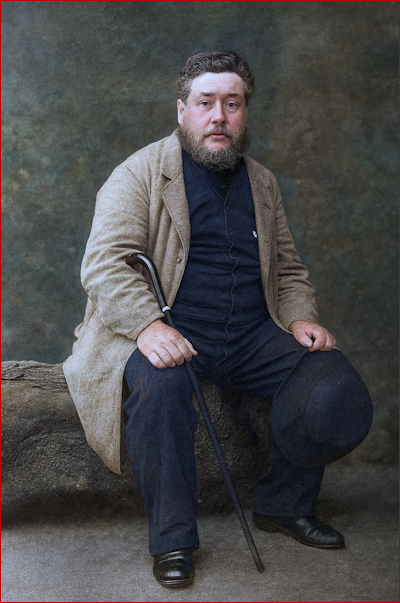
|
In Paris he was struck by the crimes of the Commune, and the necessity of enlightened religious teaching to keep down the deadly impulses in every people, the priests having lost their hold on the people of Paris. From Paris he travelled to Dijon, where he was much struck by the short time allowed for dinner in the buffet, and thought it hard that travellers should be shouted at and hurried by railway people, to the great injury of their dinners, without any occasion for the disquietude.
At Lyons he was struck by the cold where he had hoped for warmth, and disgusted with the stoves which sent all the heat up the chimney, "like professing Christians" who spread no warmth around them, but send all their heat up the chimney too. At Marseilles he got completely warm, even in the evening; but what pleased him most was to see the Mediterranean, the sea whereon "the apostle of the Gentiles" sailed, which is beaten by the wind called in the Acts Euroclydon, on which St. Paul was wrecked, and from which he landed near Rome, and perhaps also on the shores of Spain.
The ride from Marseilles to Nice delighted him with its loveliness, with its "rocks on both sides like shot-silk," with its great clumps of olives and its groves of oranges, so full of fruit that you could hardly see the trees for the oranges. The olive trees made him think of Gethsemane, and seemed to be always preaching to him, "We are a type of Jesus," because they would grow on hard lime rock where nothing else would, and "deriving nothing from the hand of man, give him plenty." The oranges he admired, but did not enjoy as fruit,—we suspect he might have said the same of the olives, if he had not magnified them for typical purposes,—being much struck by the superiority of the oranges brought to London, and making the soothing reflection,—"there was no place in the world where they could get things as they could get them in London."
At Nice he was lodged very high up, which he liked because he was near to the roof, on which he could get out, and realize better how Peter felt on the top of the house of Simon the tanner at Joppa. Mr. Spurgeon had not the vision of a vessel let down from heaven with all sorts of beasts, clean and unclean, in it; but he bethought himself seriously on his house-top at Nice, that nothing, even in foreign lands, was "common and unclean," except so far as it is made so by "the thoughts of the heart." One of his fellow travellers was afraid to look much about him, lest he should have his thoughts led away from holiness, but Mr. Spurgeon's feeling was more robust. Fortified by Simon Peter's vision, he looked at Alps and sea, and declared to himself that neither was common or unclean.
However, the idea that foreign countries required some such inspired excuse for being what they are, was evidently not far from him. For instance, the continual washing of clothes at Nice exercised Mr. Spurgeon much, as he did not see many clean clothes, and could not help thinking the people kept one suit of clothes to wear and a separate one to wash, a remark which he improved by a hit at Pharisaic purism and ostentatious observances, so supplementing the stove-smoking analogy for merely "professing" Christians. Mr. Spurgeon was tormented by the mosquitoes, which he called "gnatty little creatures,"—surely such a pun was common, if not unclean,—in spite of his mosquito-curtains, which only shut the mosquitoes in with him, instead of keeping them out, and they seemed to him a type of the cares of the world, which men are always trying to shut out by expedients which only succeed in shutting them in;—in this connection Mr. Spurgeon was hard on the Prussian Palace of Sans Souci at Potsdam, for affecting to be "without care," and he conjectured shrewdly that the said palace only performed the functions of his mismanaged mosquito-curtains at Nice,—we say mismanaged, because a very little care will really suffice to keep mosquitoes out of a mosquito-curtain.
While at Nice Mr. Spurgeon preached on board an American man-of-war, and found a boy who had been brought up in the Newington Schools, and who sent his love by Mr. Spurgeon to his uncle, who was a member—though Mr. Spurgeon had forgotten the name—of the congregation of the Tabernacle. Mr. Spurgeon was duly pleased with the scenery of the Riviera, though he does not describe well. Of Genoa he said nothing except of the remarkable skill in cheating of the Jew population there. Of the Italian railways, he remarked that they were "the slowest things out." He thought the leaning tower of Pisa more crooked even than its reputation, and had evidently an uneasy feeling that it would tumble, and he confessed that it taught him the great superiority of "the straight and square style of building." But Mr. Spurgeon was gratified with the sight of an old baptistery so big as clearly not to be meant "for children," and therefore a testimony to the antiquity of the doctrine of the Baptists.
At Rome he was very cold, and found snow fallen on the morning after his arrival, but he owns that, though quite devoid of superstition, he felt a "thrill" at being there that no other place except Jerusalem would have given him. It was the associations of the place, "which must be felt by any man who has a soul at all." These associations, he goes on to imply, had no connection with republican or mediæval Rome at all.
The Arch of Titus was a memorable thing to stand and look upon. The relief showed Titus returning from the war of Jerusalem with the golden candlesticks and trumpets; and while those things stood there it was idle for infidels to say the Bible was not true. There was the plain history written in stone, and the more such discoveries were made, the more would the truth of the grand old Book be confirmed,"—from which one would suppose both that Mr. Spurgeon had had his doubts as to the historical truth of the siege of Jerusalem before he went to Rome,—or, at least, would have had them, but for hearing of the Arch of Titus,—and that he considers that the siege of Jerusalem, with the carrying off of the golden candlesticks and trumpets, is recorded in the Bible, and not merely prophesied; otherwise the confirmations alleged do not strike us as very telling. As we never yet heard of a sceptic who doubted the one, nor of a believer who affirmed the other, the thrill which ran through Mr. Spurgeon on reaching Rome, so far as it was due to the Arch of Titus, was more creditable to his susceptibility than to his reasoning powers. It was rather of the nature of the stimulus given to the imagination of the Yorkshireman who said he felt as if he had seen London, when he had had a good look at the coachman who drove the London coach the first stage out of York.
Besides the Arch of Titus, Mr. Spurgeon was struck with the Coliseum, especially its size. His own Tabernacle, he said, would have to grow for a thousand years before it reached the same size. He was gratified with the Appian Way, which he described as "the British Museum along both sides of the road for eight miles." He was struck with the evidence of the existence of early Baptists in the Roman catacombs as well as at Pisa, for he found a true Baptistery there also, just as big as the one in the Tabernacle, and he was delighted with a picture of John the Baptist, baptizing our Lord by total immersion.
He was properly shocked at St. Peter's:—"St. Peter's was a church indeed. Looked at from the outside the dome seemed squat, and it had nothing of the glory of our own St. Paul's. But it was a thing that grew upon you; it was so huge and enormous that it filled the soul with awe; you had to grow big yourselves if you would appreciate it, and its excellent proportions. What shocked him was to see the statue of St. Peter there. Some people said it was the statue of Jupiter, and to that it had been replied, if it was not Jupiter it was the Jew Peter, so it did not matter. The amazing thing was to see the people kissing the toe of the statue. His audience might laugh, but it was actually done. He saw gentlemen wiping the toe with their handkerchiefs and kissing it, old women being helped up to do the same, and little children lifted up to follow the example. There also was the chair in which Peter never sat, and people bowing down to pay homage to it. It was, in truth, a big joss-house; an idol shop, and nothing better. It was not the worst image-house in Rome, but it was bad enough, and whatever might be said by those who turned to and professed the Catholic faith, if they were not idolators there were no idolators on earth."
For the rest, Mr. Spurgeon saw the miraculous print of St. Peter's image on the walls of a dungeon in which, according to tradition, he had been confined,—made when he was pushed against it by the brutality of his guards,—saw, and was wroth in his heart. He looked at the Vatican, saw the Papal soldier higher up on the flight of steps than the Italian soldier, who stood sentry at the door, and was convinced,—with about the same cogency of reasoning as that furnished by the Arch of Titus to the truth of the Bible,—that the Papal Government had been the worst on earth; but he had his fears for the stability of the Italian Government, as it had sprung out of a political, and not a religious revolution. Such were Mr. Spurgeon's most vivid memories of his journey to the Eternal City,' and his stay there.
Now, we have two remarks to make on this remarkable record of what this very clever and active-minded preacher did, and, as we may assume, did not, see in this journey, He seems to have seen everything on the surface which he could easily measure by an English standard. His spirit was moved within him at the rain caused by the Communists at Paris, whom he evidently compared with the mobs of London; he was indignant at the needless hurry of his digestion at Dijon, disgusted with the stoves at Lyons, and the gnats and uncleanliness at Nice; could not contain himself about the sluggishness of the Italian railways,—'the slowest things out,'—was overwhelmed with the cunning of the Genoese Jews, amazed at the size of the Coliseum and St. Peter's, and heartily appreciated the Baptizing apparatus of Pisa and the Roman Catacombs. But on the manners, even of the most superficial kind, of the countries he passed through (except in relation to the cleanliness of the clothes, a thoroughly English category of thought), he never seems to have made a single comment, except so far as their religious rites offended him.
There is not a word on the demeanour of the French or Italian peasantry or the bearing of the Roman women, not a remark (in the report at least) on a single piece of famous sculpture or a single great picture, not a memory of the marble palaces of Rome and Genoa, or of the gardens which give so strange a charm to those palaces; not a thought of the secular history of the Italian or Roman republics, not even a reference to Columbus—most English of Italian heroes—at Genoa; not a reference to the Rome of Scipio, or Camel, or Rienzi; not a trace even of the charm of the Campagua or the orthodox delight In the Coliseum by moonlight.
Mr. Spurgeon, though of a remarkably conventional type of character, is utterly unconventional in his want of deference for what be was expected to admire and didn't, and he speaks only of what interested him, and that was, most of all, the idolatry of Rome; next its political independence of the Pope;—then the indications of a sometime Baptist creed still lingering in the Catacombs; and finally, the bigness of one or two Roman buildings, and the Appian Way, because it was by that that St. Paul approached Rome. We cannot help observing that the narrowness of the circle of Mr. Spurgeon's interests in his journey is something stupendous. The mosquitoes and the slow trains evidently made much more impression on him than the soft or stately manners of the Southern peoples, than the grandeur of a world of art entirely new to him, than the associations of places with events which have made history what it is. If Mr. Spurgeon had visited Syria instead of Italy, he would have known much better what he cared to see; but he would probably have described the solitaries of the Lebanon,—the nearest approach he could find to the Elijah and Elisha of Mount Carmel,—in words rather more contemptuous than he applied to the Roman monks; and would certainly have considered the Arab Sheik—his best type for Abraham or Chedorlaomer—one of the "slowest things out" in the way of social intercourse.
The next remark we have to make is that whatever there is of real fascination for Mr. Spurgeon in the journey he undertook, was not given to it by interest in Italian literature, but by interest in Hebrew literature,—that such tincture of universal history as he had at all, was evidently real to him only in connection with the Bible. At Nice he cared to be on the roof of his hotel, because it reminded him of Peter's trance on the roof of the house at Joppa; the blue waters of the Mediterranean interested him so much because they had been swept by the storms which wrecked St. Paul, and are still, no doubt, liable to be lashed into tempest by the Euroclydon under some other name. The olive-trees reminded him of Gethsemane, and the Appian Way of St. Paul's journey. Every fibre of interest in his mind that was not English was of Hebrew origin. The Bible was his only passport to interest in those Southern peoples; it was not only the spiritualizing, but the humanizing and cultivating element of his knowledge. And as it was with him, so was it evidently with the majority of his seven thousand hearers. Should not this make us pause a very long time before we consent to strike out of our popular education the one element which, for a very large section of the English people, constitutes the only real link between the present and the past, between the North and the South, between the West and the East?

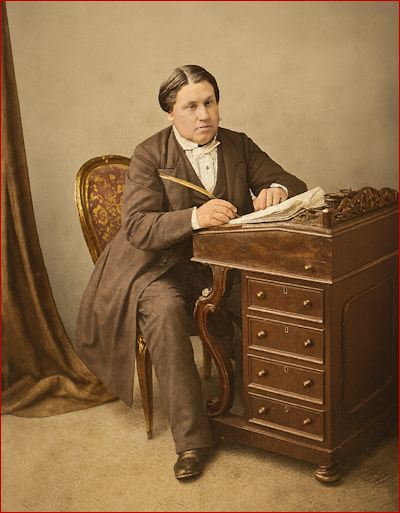
|
 ustification has for its matter and means the righteousness of Jesus Christ, set forth in his vicarious obedience, both in life and death.
ustification has for its matter and means the righteousness of Jesus Christ, set forth in his vicarious obedience, both in life and death.
Certain modern heretics, who ought to have known better, have denied this, and there were some in older times who, by reason of ignorance, said that there was no such thing as the imputed righteousness of Jesus Christ. He who denies this, perhaps unconsciously, cuts at the root of the gospel system.
I believe that this doctrine is involved in the whole system of substitution and satisfaction; and we all know that substitution and a vicarious sacrifice are the very marrow of the gospel of Christ. The law, like the God from whom it came, is absolutely immutable, and can be satisfied by nothing else than a complete and perfect righteousness, at once suffering the penalty for guilt incurred already, and working out obedience to the precept which still binds those upon whom penalty has passed. This was rendered by the Lord Jesus as the representative of his chosen, and is the sole legal ground for the justification of the elect.
As for me, I can never doubt that Christ's righteousness is mine, when I find that Christ himself and all that he has belongs to me; if I find that he gives me everything, surely he gives me his righteousness among the rest. And what am I to do with that if not to wear it? Am I to lay it by in a wardrobe and not put it on? Well, sirs, let others wear what they will; my soul rejoices in the royal apparel. For me, the term "the Lord our righteousness" is significant and has a weight of meaning. Jesus Christ shall be my righteousness so long as I read the language of the apostle, "he is made of God unto us wisdom and righteousness, sanctification, and redemption."
My dear brethren, do not doubt the imputed righteousness of Jesus Christ, whatever cavillers may say. Remember that you must have a righteousness. It is this which the law requires. I do not read that the law made with our first parents required suffering; it did demand it as a penalty after its breach; but the righteousness of the law required not suffering, but obedience. Suffering would not release us from the duty of obeying. Lost souls in hell are still under the law, and their woes and pangs if completely endured would never justify them. Obedience, and obedience alone, can justify, and where can we have it but in Jesus our Substitute?
Christ comes to magnify the law: how does he do it but by obedience? If I am to enter into life by the keeping of the commandments, as the Lord tells me in the nineteenth chapter of Matthew, and the seventeenth verse, how can I except by Christ having kept them? and how can he have kept the law except by obedience to its commands? The promises in the Word of God are not made to suffering; they are made to obedience: consequently Christ's sufferings, though they may remove the penalty, do not alone make me the inheritor of the promise.
"If thou wilt enter into life," said Christ, "keep the commandments." It is only Christ's keeping the commandments that entitles me to enter life. "The Lord is well pleased for his righteousness, sake; he will magnify the law, and make it honourable." I do not enter into life by virtue of his sufferings—those deliver me from death, those purge me from filthiness, but, entering the enjoyments of the life eternal must be the result of obedience; and as it cannot be the result of mine, it is the result of his which is imputed to me.
We find the apostle Paul putting Christ's obedience in contrast to the disobedience of Adam: "As by one man's disobedience many were made sinners, so by the obedience of one shall many be made righteous." Now this is not Christ's death merely, but Christ's active obedience, which is here meant, and it is by this that we are made righteous. Beloved, you need not sing with stammering tongues that blessed verse of our hymn,—



|
The most interesting sections of the second volume of the "Life of Spurgeon" are the extraordinary love letters which he addressed to his wife and the account which that lady  gives of her courtship. The first time she saw her future husband he occupied the pulpit of New Park-street on the Sunday when he preached his first sermon there.
gives of her courtship. The first time she saw her future husband he occupied the pulpit of New Park-street on the Sunday when he preached his first sermon there.
After it had been settled that young Spurgeon should occupy New Park-street pulpit with a view to the permanent pastorate, Miss Thompson used to meet him occasionally at the house of their common friends, Mr. and Mrs. Olney, and she sometimes went to hear him preach. About this time she became alarmed at her backsliding spiritual state, and was moved to seek guidance from one of the pillars of the Sunday-School, Mr. Olney's second son. "He may have told the new pastor about me," she says, "I cannot say; but one day I was greatly surprised to receive from Mr. Spurgeon an illustrated copy of 'The Pilgrim's Progress,' with this inscription:—'Miss Thompson, with desires for her progress in the blessed pilgrimage, from C. H. Spurgeon. Ap. 20,1854.'" Their friendship steadily grew after this, and on June 10 the lover made his first "revelation." They were present with a large party of friends at the opening of the Crystal Palace on that day:—
"We occupied some raised seats at the end of the palace where the great clock is now fixed. As we sat there talking, laughing, and amusing ourselves as best we could, while waiting for the procession to pass by, Mr. Spurgeon handed me a book, into which he had been occasionally dipping, and pointing to some particular lines, said—"What do you think of the poet's suggestion in those verses?" The volume was Martin Tupper's "Proverbial Philosophy." The pointing finger guided my eyes to the chapter on "Marriage," of which the opening sentences ran thus:-
Seek a good wife of thy God, for she is the best gift
of His providence;
Yet ask not in bold confidence that which He hath
not promised:
Thou knowest not His goodwill: be thy prayer then
submissive thereunto,
And leave thy petition to His mercy, assured that He
will deal well with thee.
If thou art to have a wife of thy youth she is now
living on the earth;
Therefore think of her and pray for her weal.
"Do you pray for him who is to be your husband?" said a soft low voice in my ear—so soft that no one else heard the whisper.
I do not remember that the question received any vocal answer, but my fast-beating heart, which sent a tell-tale flush to my cheeks, and my downcast eyes, which feared to reveal the light which at once dawned in them, may have spoken a language which love understood. From that moment a very quiet and subdued little maiden sat by the young pastor's side, and while the brilliant procession passed round the palace I do not think she took so much note of the glittering pageant defiling before her as of the crowd of newly awakened emotions which were palpitating within her heart."
There were nearly two months of "loving looks and tender, tones and clasping hands," and the Crystal Palace remained the lovers' trysting place, where they met on one afternoon every week if his preaching engagements permitted. Then on August 2 came the "verbal confession," and Miss Thompson made the following entry in her diary against that day:—"It is impossible to write down all that occurred this morning. I can only adore in silence the mercy of my God, and praise Him for all His benefits."
The love-letters here are among the most remarkable love-letters ever published. She is "My own doubly-dear Susie," and he "My dearest;" he "your much-loved, and ardently loving, C. H. S.;" she "fondly and faithfully yours, Susie." On January 11, 1855, he acknowledges having received her confession of repentance and faith. "I fatter no one," he writes, "but allow me to say, honestly, that few cases which have come under my notice are so satisfactory as yours. Mark, I write not now as your admiring friend, but impartially as your pastor." And so in this epistle he signs himself, "Yours with pure and holy affection, as well as terrestrial love." The following letter was written from Scotland, whither the pastor had gone, partly on a holiday, and partly to fulfil many preaching engagements:—
"Now to return to you again, I have had day-dreams of you while driving along, I thought you were very near me. It is not long, dearest, before I shall again enjoy your sweet society, if the providence of God permit. I knew I loved you very much before, but now, I feel how necessary you are to me; and you will not lose much by my absence if you find me, on my return, more attentive to your feelings, as well as equally affectionate. I can now thoroughly sympathise with your tears, because I feel in no little degree that pang of absence which my constant engagements prevented me from noticing when in London. How then must you, with so much leisure, have felt my absence from you, even though you well knew that it was unavoidable on my part. My darling, accept love of the deepest and purest kind from one who is not prone to exaggerate, but who feels that here there is not room for hyperbole. Think not that I weary myself by writing; for, dearest, it is my delight to please you, and solace an absence which must be even more dreary to you than to me since travelling and preaching lead me to forget it. My eyes ache for sleep, but they shall keep open till I have invoked the blessings from above—mercies temporal and eternal—to rest on the head of one whose name is sweet to me, and who equally loves the name of her own, her much-loved C.H.S."
He presented her at this time with a book bearing the title of "The Pulpit Library," the first published volume of his sermons. The occasion of the gift is expressed by the inscription:—"In a few days it will be out of my power to present anything to Miss Thompson. Let this be a remembrance of our happy meetings and sweet conversations.—Dec 22, 1855. C. H. Spurgeon." The wedding took place on January 8,1856, in New Park-street Chapel amid great enthusiasm. Prospective brides and bridegrooms will be deeply interested in Mr. Spurgeon's inscription in the family Bible recording the marriage; and not less in the "loving comment" he added to this inscription eleven years afterwards:—
Charles Haddon Spurgeon and Susannah Thompson were by the gracious arrangement of Divine Providence most happily married at New Park-street Chapel by Dr. Alexander Fletcher on Tuesday, January 8, 1856.
And as year rolls after year
Each to other still more dear.



 t is not to be thought of for a moment that any minister would appropriate a sermon bodily, and preach it as his own. Such things have been done, we suppose, in remote ages, and in obscure regions; but nobody would justify a regular preacher in so doing. We give great license to good laymen, who are occupied with business all the week, and too much pressed with public engagements to have time to prepare. When princes and peers have speeches made for them, a sort of toleration is understood; and should a public functionary be so anxious to do good that he delivers a sermon, we excuse him if he has largely compiled it; yes, and if he memorises the bulk of it, and bravely says so, we have no word of censure. But for the preacher who claims a divine call, to take a whole discourse out of another preacher's mouth, and palm it off as his own, is an act which will find no defender.
t is not to be thought of for a moment that any minister would appropriate a sermon bodily, and preach it as his own. Such things have been done, we suppose, in remote ages, and in obscure regions; but nobody would justify a regular preacher in so doing. We give great license to good laymen, who are occupied with business all the week, and too much pressed with public engagements to have time to prepare. When princes and peers have speeches made for them, a sort of toleration is understood; and should a public functionary be so anxious to do good that he delivers a sermon, we excuse him if he has largely compiled it; yes, and if he memorises the bulk of it, and bravely says so, we have no word of censure. But for the preacher who claims a divine call, to take a whole discourse out of another preacher's mouth, and palm it off as his own, is an act which will find no defender.
Yet, he that never quotes, will never be quoted. To stop to give the name of the writer, and book from which the extract is made, would be pedantic, and would break the effect aside from the purpose of a discourse. Verbatim quotations some of us can seldom make; because we have shockingly bad memories for other men's words, and we should have to write out the extracts and read them, which would greatly embarrass us in an extempore sermon. We can, as a rule, only give the sense, and, if possible, say that we owe it to a learned divine, or a standard writer. Even this cannot always be done, since wide readers cannot possibly remember the source of every thought which they repeat.
As to thoughts: if a speaker should be able to confine himself to ideas which never entered into mortal brain before, he would have few enough, or none at all. Our predecessors have, in substance, already thought all that is worth thinking; and all that we can do is to shape these matters in our own mould, and deliver them in our own language. Everything that is worth hearing in the most original sermons could be found somewhere else by a man who had the Bodleian at his command, and an index of it in his head. To shut men up to absolutely new thoughts, would be to condemn them to silence, to forbid them to use their Bibles, and to make total ignorance of all that is written in books a main qualification for the pulpit. Even with such an inglorious unacquaintance with the utterances of others, the mind, to be a mind at all, would be forced unconsciously to follow trodden tracks, unless it ran into utter wildness of almost inconcievable heresy. Some would appear to be trying this plan; but their success in folly more than equals their achievement in originality. The man who aims at edifying his hearers, reads instructive authors with attention, and, after sitting at their feet as a learner, inwardly digests their teaching. He "eats the roll," and so makes it his own, and, in due course, delivers to his people that which he has himself enjoyed, with much more that has come of it. We do not call this plagiarism; and if any choose to do so, we shall defend the imaginary offence, and glory in committing it.
It is to be feared that really vicious plagiarism must be getting very common, since we note that a gentleman who was prosecuted for a breach of promise, was found to have committed another breach also; for he had copied his love-letters from a story book. His heart must have been in a rather artificial condition when his passion could be expressed in another man's words. The same remark might be made in reference to a preacher's heart, if he found another man's language the exact exponent of his own emotions. He who buys manuscript sermons, paying so much for a sufficient quantity to last him through a quarter of a year, would soon either to have no heart at all, or else to abide in constant bondage; since he never uses his own powers freely, but runs on in his purchased discourse like a man racing in a sack. For a deacon, or other good man, to read a profitable sermon, and say that he is doing so, is a praiseworthy action; but for a pastor to buy ready-made discourses, and voice them as his own, is the reverse. If a man has no message from God, let him hold his tongue; and if he is tempted to borrow another's utterances, let him beware of that Scripture which saith, "Behold, I am against the prophets, saith the Lord, that steal my words every one from his neighbour."
So far as Spurgeon's Sermons are concerned, the author does not take out a patent for them; but, on the contrary, would be glad for anyone to borrow from them, or read them publicly. The gracious truths which we preach we would publish to the four winds of heaven. There might be a question as to copyright should anyone publish a whole sermon as his own, as a learned professor once did; but to read them as Spurgeon's Sermons is an honour done to the preacher, for which he is grateful. One brother turned our sermons into Welsh, and then translated them back again into English, and so made them his own; who can find any fault with him? Very wise people would scorn to be thus indebted to any man; and yet their own sermons are such, that the people could not be worse fed even if their shepherd did borrow a little corn from a neighbour's granary. To feed your children on bread not made at home may be risky; but not to feed them at all is worse. One's own coat fits him best; but when the snow lies thick on the ground, it would be better to borrow a friend's wrapper than go out with none at all. Plagiarism is not to be commended; but there are offences of a more crimson dye than this.
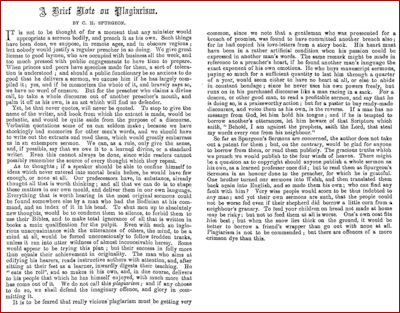


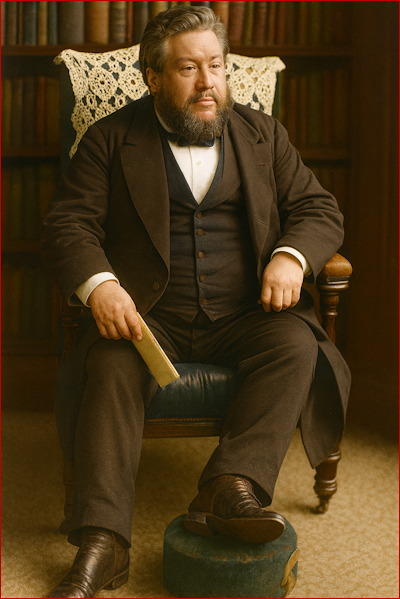
|
 harles Spurgeon loved the Song of Solomon. Sixty-three of his published sermons are based on texts from Solomon's Song. That's two-plus sermons a year on average, twice as many messages as Spurgeon preached from Colossians. In fact, Spurgeon's unabridged Song of Solomon sermons contain enough material to fill a fifteen-hundred-page book with a typeface smaller than you are now reading. All that material was drawn from an Old Testament poetic love song that most preachers would say is the single most difficult book in Scripture from which to preach.
harles Spurgeon loved the Song of Solomon. Sixty-three of his published sermons are based on texts from Solomon's Song. That's two-plus sermons a year on average, twice as many messages as Spurgeon preached from Colossians. In fact, Spurgeon's unabridged Song of Solomon sermons contain enough material to fill a fifteen-hundred-page book with a typeface smaller than you are now reading. All that material was drawn from an Old Testament poetic love song that most preachers would say is the single most difficult book in Scripture from which to preach.
Spurgeon said:
If I must prefer one book above another, I would prefer some books of the Bible for doctrine, some for experience, some for example, some for teaching, but let me prefer this book above all others for fellowship and communion. When the Christian is nearest to heaven, this is the book he takes with him. There are times when he would leave even the Psalms behind, when standing on the borders of Canaan. When he is in the land of Beulah, and he is just crossing the stream, and can almost see his Beloved through the rifts of the storm-cloud, then it is he can begin to sing Solomon's Song. This is about the only book he could sing in heaven, but for the most part, he could sing this through, these still praising him who is his everlasting lover and friend.1
Spurgeon (in accord with Victorian sensibilities) paid scant attention to the historical context of Solomon's song. Passing over the literal sense of Solomon's love song, he regularly preached from this book about Christ's love for His church (and vice versa). He regarded the poetry of Solomon's Song as "the language of a soul longing for the view of Jesus Christ in grace."3
Spurgeon has frequently been vilified in the current age for his handling of these texts. Some of today's rude-and-randy hipster preachers have viciously mocked Spurgeon for the respect he showed to Victorian modesty—while they themselves have reduced Solomon's love song to a vulgar sex manual. More significantly, Spurgeon has taken fire from advocates of sound expository preaching for his exegesis of the poetry. He is often accused of spiritualizing and allegorizing Solomon's song in a way that is wholly unwarranted by the text itself.
When handling the Song of Solomon, Spurgeon did take some hermeneutical shortcuts that we might well quibble with.
For example, his earliest published sermon on Solomon's Song begins with these words: "I shall not, this evening, attempt to prove that the Song of Solomon has a spiritual meaning. I am sure it has." He went on to give some reasons why he did not believe the Shulammite in the poem was the daughter of Pharaoh mentioned in 1 Kings 3:1. He did not then explain the actual historical background of the poem. He simply stated dogmatically, "This is Jesus speaking to his Church."4
 We might quibble with Spurgeon's hermeneutical shortcut, but the point he was ultimately making is not altogether invalid. Marriage is, after all, a picture of Christ and His church (Ephesians 5:22-33). Spurgeon's dogmatic assertion simply echoes the words of the apostle: "This mystery [marriage] is profound, and I am saying that it refers to Christ and the church" (v. 31). In the preceding verse, Paul had Quoted Genesis 2:24 ("Therefore a man shall leave his father and his mother and hold fast to his wife, and they shall become one flesh"), which is the original divine mandate for the institution of marriage.
We might quibble with Spurgeon's hermeneutical shortcut, but the point he was ultimately making is not altogether invalid. Marriage is, after all, a picture of Christ and His church (Ephesians 5:22-33). Spurgeon's dogmatic assertion simply echoes the words of the apostle: "This mystery [marriage] is profound, and I am saying that it refers to Christ and the church" (v. 31). In the preceding verse, Paul had Quoted Genesis 2:24 ("Therefore a man shall leave his father and his mother and hold fast to his wife, and they shall become one flesh"), which is the original divine mandate for the institution of marriage.
If marriage itself "refers to Christ and the church," and Solomon's song is a poem about marital affection, then it is not at all far fetched. to say, as Spurgeon did, that a Holy-spirit-inspired poem about marriage "is Jesus speaking to His Church."
A careful expositor today would no doubt handle these texts somewhat differently from Spurgeon. We wouldn't hesitate to acknowledge the author's original meaning and the proper historical context of the poem. Nevertheless, given the fact that the whole purpose of marriage in the first place is to serve as a living, holy picture of Christ's union with the church, there are many valid and important spiritual truths about Christ's love for His people to be gleaned from the Song of Solomon. It may well be that those who omit this aspect of Solomon's song have missed the most important point of all.
In any case, Spurgeon's approach is vastly superior to the boorish way stylish postmodern preachers have recently tried to treat the book as an explicit sex manual or an evangelical Kama Sutra. As you read these sermons, I trust you will be captivated by the lofty way Spurgeon unfolds the real significance of marital love, the reverent way he honors Christ, and the genuine desire he has for the whole church to see our Lord in all His glory. Above all, I trust you'll begin to appreciate Spurgeon's conviction that Christ alone is "altogether lovely."
_________________
1. Charles Spurgeon, The New Park Street Pulpit, 6 vols. (London: Passmore & Alabaster, 1859), 5:458.
2. Ibid.
3. Charles Spurgeon, The Metropolitan Tabernacle Pulpit, 63 vols. (London: Passmore & Alabaster, 1863), 9:625.
4. The New Park Street Pulpit, ibid., 5:457ff.


"Be diligent to present yourself approved to God as a workman who does not need to be ashamed, accurately handling the word of truth" (2 Timothy 2:15).
 ack in the era when I was blogging on a regular basis, there was a lot of discussion about the ethical propriety of pastors' paying for research and writing from a company like the Docent Group. Docent claimed several well-known ministerial clients, including Tim Keller, Matt Chandler, Craig Groeschel, and—most notoriously—Mark Driscoll.
ack in the era when I was blogging on a regular basis, there was a lot of discussion about the ethical propriety of pastors' paying for research and writing from a company like the Docent Group. Docent claimed several well-known ministerial clients, including Tim Keller, Matt Chandler, Craig Groeschel, and—most notoriously—Mark Driscoll.Driscoll's rapid downfall was partially sparked by accusations that he was a serial plagiarizer, and one of the charges made against him was that his sermons were written for him, at least in part, by Docent.
Management and staff at Docent are clearly sensitive about their reputation as an illegitimate shortcut enabling dilettante preachers to bypass the work they should be doing in sermon preparation. Docent's current website reflects the company's uneasiness with the idea of writing prefabricated sermons for lazy pastors. In the website's FAQ, the first question listed is, "Does Docent Write Sermons?" Their answer:
Docent does not and will never write sermons. We started Docent to help pastors become better preachers, and pastors will never become better preachers with someone else writing their sermons. We have received requests from potential clients to write sermons in the past, but we have declined to work with those pastors because writing sermons violates our core values.To put it affirmatively, we believe that pastors are called to write their own sermons for their flocks.
custom create—from scratch—content for busy pastors: sermon research, congregational surveys, small group, discipleship, and leadership pipeline curriculum, book summaries, assistance in turning the pastor’s content into books, and position papers and training seminars to help staff and/or attenders grapple with cultural challenges.Docent partners with pastors to provide research assistance to lighten their load and help them serve their churches more effectively. We do provide sermon research, leadership consultation, and custom curriculum.
There are, of course, legitimate ways a pastor can benefit from the help of a skilled researcher—fact finding, statistics, survey data, demographic details, or help in finding documentable sources for anecdotes or unsourced quotations. (I regularly answer questions from pastors who ask, "Did Spurgeon really say this thing that is often attributed to him? And if so, what's the source?") Nothing wrong with getting help at that level. Though candidly, AI would seem to render Docent's services unnecessary for questions like that.
Here's an informative criticism of Docent. I don't need to join the dogpile. Docent are by no means the worst in this internet-era genre of groups offering shortcuts for preachers. Perhaps they really do try to guard how their research is used. They say they try to "notice red flags if a client is regularly using too much of the content from the brief." I'm not sure what they might do (if anything) when they learn that a pastor is using Docent as an illegitimate shortcut. But at least they say they don't approve of or encourage that use of their work.
Other services and apps are available that don't seem to have any qualms at all about helping pastors cheat. There's Verble, who advertise with the slogan "Effortless Sermon Writing . . . Turn Scripture, prayer, and reflection into a clear, powerful sermon in minutes." Then there's Sermon Box, where you can buy whole sermon series, replete with "modern media packs" and "worship visuals." Or Rick Warren's Pastors.com. They say, "Our passion is to have healthy pastors leading healthy churches for the global glory of God." But in reality the website is a crass marketplace peddling prefabricated sermons and other material (mostly by Rick Warren) with precious little biblical content.
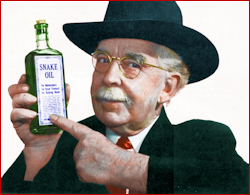 I could go on. It seems a lot of unscrupulous hustlers are making money hawking superficial sermons to slothful preachers.
I could go on. It seems a lot of unscrupulous hustlers are making money hawking superficial sermons to slothful preachers.
There was a brief scandal among Southern Baptists in 2021 (dubbed "sermongate") when someone pointed out that SBC president Ed Litton preached the same sermon, nearly verbatim, that the previous SBC president, J. D. Greear, had preached a year earlier. (It soon came to light that this was a longtime pattern of Litton's.) Greear himself faced accusations that he had taken a personal anecdote from Paul Tripp and retold it as his own.
Every now and then I'll get a letter or email from an elder somewhere who has discovered that his pastor is merely reading transcripts of John MacArthur's sermons or lifting material verbatim from his commentaries—while pretending he is preaching sermons that came out of his own study. John had no objection if other pastors incorporated into their messages ideas and observations borrowed from his sermons, and he didn't expect (or even desire) to be named in a credit line every time a preacher used an idea from one of his sermons or commentaries. But he did not approve of preachers using verbatim excerpts from someone else's work and passing it off as if it were their own original material. That is plagiarism. John's comment was that a man who does that is not a preacher; he is a performer—an actor.
 But apparently there are a lot of men filling pulpits in evangelical churches who don't much bother to study the Scriptures for themselves. They use the work of others without attribution and pretend their sermons are the fruit of their own study. Whether they recite full sermons or just steal a paragraph here and there doesn't matter. It is still plagiarism. It is an illegitimate shortcut, and if a preacher does it routinely, in my judgment, he is not qualified to teach.
But apparently there are a lot of men filling pulpits in evangelical churches who don't much bother to study the Scriptures for themselves. They use the work of others without attribution and pretend their sermons are the fruit of their own study. Whether they recite full sermons or just steal a paragraph here and there doesn't matter. It is still plagiarism. It is an illegitimate shortcut, and if a preacher does it routinely, in my judgment, he is not qualified to teach.
AI presents a whole new level of temptation for lazy preachers. It also offers a new and more efficient way to discover plagiarism in a pastor's sermons. If a preacher is reciting material verbatim from a published source, the AI machine will recognize that level of plagiarism pretty easily.
But as noted, AI can also be used in place of a research group like Docent. You can ask almost any AI app to write material for a sermon on, say, John 3:16, and the response will come back in seconds. AI is truly intelligent. The results can often be preached with no or minimal editing. And it will probably pass as "original," in the sense that it isn't word for word like anything currently available.
Having AI write sermon material for you is still an illegitimate shortcut, and your ministry will suffer if you do it—because it will isolate you from the sanctifying influence that you gain when you study the Scriptures for yourself. Second Timothy 2:15 should weigh heavily on the conscience of any preacher who takes such shortcuts.
 Almost every website that offers sermon-prep shortcuts for preachers will say things like, "Pastors today are busy with administration, planning, organizing, counseling, and a host of other duties. We can help minimize the time you spend preparing sermons."
Almost every website that offers sermon-prep shortcuts for preachers will say things like, "Pastors today are busy with administration, planning, organizing, counseling, and a host of other duties. We can help minimize the time you spend preparing sermons."
But preaching the Word, in season and out of season, is the primary duty and first priority of every pastor. If a preacher finds his schedule is too busy to spend personal time studying the biblical text and preparing a sermon, then he needs to cut something else out and "devote [himself] to prayer and to the service of the word" (Acts 6:4).
|

|

 ere are four items—a small sampling of some typical issues that illustrate my concerns about the doctrinal and ideological trajectory of The Gospel Coalition:
ere are four items—a small sampling of some typical issues that illustrate my concerns about the doctrinal and ideological trajectory of The Gospel Coalition:
 Despite the Coalition's stated view that the church needs to "dethrone politics," the organization's political sympathies seem suspiciously partisan. The political consensus among TGC contributors has a decidedly leftward tilt. Politically conservative voices are rarely heard or taken seriously by TGC writers.
Despite the Coalition's stated view that the church needs to "dethrone politics," the organization's political sympathies seem suspiciously partisan. The political consensus among TGC contributors has a decidedly leftward tilt. Politically conservative voices are rarely heard or taken seriously by TGC writers.
To cite one example, TheGospelCoalition.org has featured several articles by Michael Wear, Democrat strategist and former member of Obama's White House staff. Wear was also a key figure leading Obama's 2012 reelection campaign. He still works full time trying to persuade Christians to vote Democrat despite the Democrat Party's radical support for abortion on demand.
TGC's website also published a glowing review of Wear's book, Reclaiming Hope: Lessons Learned in the Obama White House about the Future of Faith in America. Among other things, the reviewer says, "Part of the agenda of Reclaiming Hope is to establish that, in spite of the dysfunctions of the culture war, politics is good; it's a primary mode of doing justice and mercy in God's world." The book (and the TGC review) celebrates Obama's record on "justice and mercy" as the principal category of political achievement in which "Obama did exceptionally well." That seems a fairly myopic assessment of a presidency under which ethnic strife, crime, abortion, drug use, and general hostility to biblical values in America increased at unprecedented rates.
Wear is of course not the only left-leaning political figure who has been platformed by TGC. Coalition editors seem to favor progressive and quasi-progressive viewpoints from pundits like Ed Stetzer, Russ Moore, Ray Ortlund, Karen Swallow Prior, and David French (all of whom who seem never to miss an opportunity to scold conservatives while making concessions to secular progressives).
 The relentless platforming of Sam Allberry is problematic, for reasons that should be obvious. His resolute defense of same-sex attraction seems quite contradictory to the principle Jesus sets forth in Matthew 5:28. On the one hand, Allberry has shown that he is capable of saying things that are good and edifying. It's true that he formally disavows same-sex marriage and clearly states that same-sex sexual relationships are sinful. But on the other hand, he insists that homosexual desire is not necessarily a sin to be mortified. He pleads for Christians to embrace and support people who self-identify as same-sex attracted. He and those influenced by his rhetoric have opened a door through which more radical activists have now come to lobby for full acceptance of "gay Christians." The organization Allberry helped found, "Living Out," has been rightly criticized for their tendency to see how far they can push the limits of propriety and holiness in order to "encourage" people who are attracted to members of their own sex.
The relentless platforming of Sam Allberry is problematic, for reasons that should be obvious. His resolute defense of same-sex attraction seems quite contradictory to the principle Jesus sets forth in Matthew 5:28. On the one hand, Allberry has shown that he is capable of saying things that are good and edifying. It's true that he formally disavows same-sex marriage and clearly states that same-sex sexual relationships are sinful. But on the other hand, he insists that homosexual desire is not necessarily a sin to be mortified. He pleads for Christians to embrace and support people who self-identify as same-sex attracted. He and those influenced by his rhetoric have opened a door through which more radical activists have now come to lobby for full acceptance of "gay Christians." The organization Allberry helped found, "Living Out," has been rightly criticized for their tendency to see how far they can push the limits of propriety and holiness in order to "encourage" people who are attracted to members of their own sex.
There are other indications that TGC is poised for compromise on biblical sexual ethics. For example, see TGC's positive review of Greg Johnson's book Still Time to Care: What We Can Learn from the Church's Failed Attempt to Cure Homosexuality.
 TGC badly mishandled almost every aspect of the COVID crisis, uncritically echoing untruths that we now know were deliberately spun by Dr. Fauci and Francis Collins, parroted by most of the media, and used by government officials to impose tyrannical restrictions. Officials in Canada were literally jailing pastors while letting rapists walk free. In California the government was closing churches while opening casinos, strip clubs, and massage parlors. Officials in every major developed country forced policies on people that the politicians themselves flouted.
TGC badly mishandled almost every aspect of the COVID crisis, uncritically echoing untruths that we now know were deliberately spun by Dr. Fauci and Francis Collins, parroted by most of the media, and used by government officials to impose tyrannical restrictions. Officials in Canada were literally jailing pastors while letting rapists walk free. In California the government was closing churches while opening casinos, strip clubs, and massage parlors. Officials in every major developed country forced policies on people that the politicians themselves flouted.
Meanwhile, TGC writers were harshly critical of Grace Church for gathering to worship while county officials tried to keep us closed. None of the opinion pieces on COVID at TGC gave a helpful response to government and health officials' declaration that church meetings are "nonessential." The stance our church took has been fully vindicated by the courts and by facts that have since come to light. Namely, we now know the truth about the uselessness of masks, the ineffectiveness (and dangers) of the vaccines, and the less-than-apocalyptic danger of the virus itself.
TGC seems to have shrewdly and quietly deleted the articles they published lauding Collins and Fauci. They no doubt wish they had taken a more balanced and charitable perspective than they took during the long months of lockdowns and the immediate aftermath. But they have never actually apologized for their harsh condemnations of people who raised legitimate questions about the official narrative.
Overreaching government policy during COVID dealt a significant blow to churches everywhere, and TGC (where "engaging culture" is supposed to be a priority) squandered a choice opportunity to make a clear statement to our culture about the vital importance of gathered worship for the church of Jesus Christ.
 TGC has shown a clear preference for the Woke notion that systemic injustice is a major factor causing ethnic strife, political unrest, and other social problems—and that practically all our institutions need a major overhaul to compensate for that. Since 2014 or so, themes from the secular debate about "social justice" have dominated the web pages at TheGospelCoalition.org. The overwhelming majority of TGC conferences, articles, videos, and podcasts dealing with elements of that debate have yielded ground unnecessarily to the underlying neo-Marxist ideology that gave birth to such a twisted definition of "justice."
TGC has shown a clear preference for the Woke notion that systemic injustice is a major factor causing ethnic strife, political unrest, and other social problems—and that practically all our institutions need a major overhaul to compensate for that. Since 2014 or so, themes from the secular debate about "social justice" have dominated the web pages at TheGospelCoalition.org. The overwhelming majority of TGC conferences, articles, videos, and podcasts dealing with elements of that debate have yielded ground unnecessarily to the underlying neo-Marxist ideology that gave birth to such a twisted definition of "justice."
We are by no means alone in this perspective. The dozen or more Christian leaders who drafted the Dallas Statement on Social Justice in June of 2018 all shared a common concern about the aggressive way TGC promotes an unbiblical notion of what justice entails.
PS: Here's an exchange I had with Joe Carter more than eight years ago about TGC's obsession with the trivial matters that dominate pop culture compared to the scant attention they give to actual gospel issues. The organization's middle name seems something of a misnomer, given what they actually pay attention to.

Amazon also has it. See details at Kress
Also available at Logos

Available on Kindle and in Logos
View readers' favorite Kindle excerpts
|
Remember that you are our guests. We will, at our discretion, delete comments that we find off-topic, derailing, un-civil, slanderous, trollish or troll-feeding, petulant, pestiferous, and/or otherwise obnoxious and non-constructive. If we warn you, stop it. After no more than three warnings, you will find yourself banned, and all your future comments will be immediately deleted.
See an error in the post? How clever of you! Email the author. If you comment a correction, expect the comment to disappear with the error.
If you are confused about how the specifics of these principles play out in practical terms, you'll find a longer list of rules HERE.

 |
| The opinions expressed in this blog do not necessarily represent the views of all contributors. Each individual is responsible for the facts and opinions contained in his posts. Generally, we agree. But not always. |